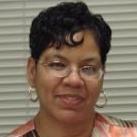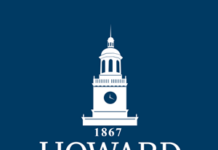 Historically Black Morgan State University in Baltimore has announced plans to launch the Center for Urban Health Equity. Housed within the university’s School of Community Health and Policy, the new center will engage in research to address health inequities in Maryland. The initial launch of the Center for Urban Health Equity at Morgan State is being made possible through funds recently received from philanthropist MacKenzie Scott and maintained by way of an annual $3 million appropriation commitment from the State of Maryland to the university.
Historically Black Morgan State University in Baltimore has announced plans to launch the Center for Urban Health Equity. Housed within the university’s School of Community Health and Policy, the new center will engage in research to address health inequities in Maryland. The initial launch of the Center for Urban Health Equity at Morgan State is being made possible through funds recently received from philanthropist MacKenzie Scott and maintained by way of an annual $3 million appropriation commitment from the State of Maryland to the university.
The Center will be designed to focus on community-driven interests allowing maximum research energy and effort for immediate allocation and response to the root issues that influence — and in many cases, perpetuate— health disparities. The university plans for the Center’s research to be transformative, disruptive, innovative and, most critically, impactful.
 “On behalf of the committed faculty and student researchers within the School of Community Health and Policy, we are grateful and extremely excited to have the support of our university and state leadership, as well as the necessary funding needed in order for this effort to become a reality,” said Kim Dobson Sydnor, dean of the School of Community Health and Policy. “While being housed in our school, it will be a center that will incorporate every college/school on campus and have extensive and essential involvement of communities and other stakeholder groups beyond the university’s walls. Having the potential to benefit people, communities, organizations, and agencies statewide, will be immensely beneficial. I personally look forward to the work, the collaborative relationships, and the impact that will emerge over time and feel confident that, implemented as envisioned, this will be a worthwhile investment of state resources.”
“On behalf of the committed faculty and student researchers within the School of Community Health and Policy, we are grateful and extremely excited to have the support of our university and state leadership, as well as the necessary funding needed in order for this effort to become a reality,” said Kim Dobson Sydnor, dean of the School of Community Health and Policy. “While being housed in our school, it will be a center that will incorporate every college/school on campus and have extensive and essential involvement of communities and other stakeholder groups beyond the university’s walls. Having the potential to benefit people, communities, organizations, and agencies statewide, will be immensely beneficial. I personally look forward to the work, the collaborative relationships, and the impact that will emerge over time and feel confident that, implemented as envisioned, this will be a worthwhile investment of state resources.”
Dr. Sydnor is a graduate of Morgan State University, where she majored in psychology. She holds a Ph.D. in health policy and management from Johns Hopkins University in Baltimore.












Here’s another example of Morgan State University misguided president and others creating another “university center” they’re ill-equipped (e.g., professional staff, infrastructure, etc.)to handle. Dr. Wilson need to strengthen all of their current academic programs first and foremost. Dr. Wilson and his cronies spend entirely too much time and energy trying to be “all things to all people. Let’s not even discuss Wilson’s long deep desire and yearning for Morgan State University to be known as a “non-HBCU”. Talk about a serious internal threat.
Do tell us: What MSU units should be strengthened and how? What infrastructure should be in place? And do please explain how adding programs somehow will make Morgan a non-HBCU? Have you ever heard of NC A&T State, Jackson State, or Florida A&M? Do you think new programs occur without hiring new people?